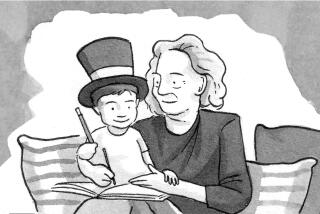Readers React: Without the English language, what is there to bind Americans together?

- Share via
To the editor: There is nothing wrong with learning several languages. Most advanced countries have an established national language along with a second widely known and taught among the people.
The problems that arise with a multitude of languages being spoken in one country is that there is no commonality binding people together. It is an insult for people living permanently or even temporarily in a country not to learn the language of the land.
As a teacher, I encountered so many people who chose not to learn English even though they had lived here for decades. As a result, money had to be spent on translation. Also, we print ballots in multiple languages even though people must demonstrate proficiency in English to become naturalized U.S. citizens.
I cannot imagine living in another country without wanting to learn the language. Otherwise, I might as well have stayed where I came from. As a temporary resident of several foreign countries, I did my best to learn the language in order to become part of the country.
Linda Roberts, Altadena
..
To the editor: There is no denying that a person who speaks more than one language enjoys certain advantages. My family’s experience can attest to that.
My parents immigrated to the U.S. in the early 1950s. I started my primary education in a total immersion method; there was no bilingual education then. My parents too had a rule: At home you will speak only Spanish.
Both Spanish and English became my “primary language.” I completed high school among the top in my class, attended a four-year college, and returned for a post-graduate degree. I married a woman with a similar experience, so our kids have also enjoyed the advantages of a bilingual environment at home.
But in this country, English speakers have the advantage. Most major professional transactions are in English. Entertainment industry proposals, engineering papers, medical conferences and boardroom meetings are all in English. An English-only request at the workplace is not discriminatory, not even when you recognize its inherent social limitations.
Nor does it say that one should only speak English. It does however emphasize that English is the primary language in the United States, and that assimilation is the key to achieving the American dream.
Rafael A. Chavez, Sherman Oaks
..
To the editor: Who could not agree that knowledge of another language alongside English is a good thing?
The op-ed article writer argues for signs in other tongues. To encourage the learning of other languages, let’s have signage in several different languages — Spanish, French, German, Mandarin and so on, but not in English.
That would really push people to become multilingual.
Richard Jackson, Arroyo Grande
Follow the Opinion section on Twitter @latimesopinion and Facebook
More to Read
A cure for the common opinion
Get thought-provoking perspectives with our weekly newsletter.
You may occasionally receive promotional content from the Los Angeles Times.










